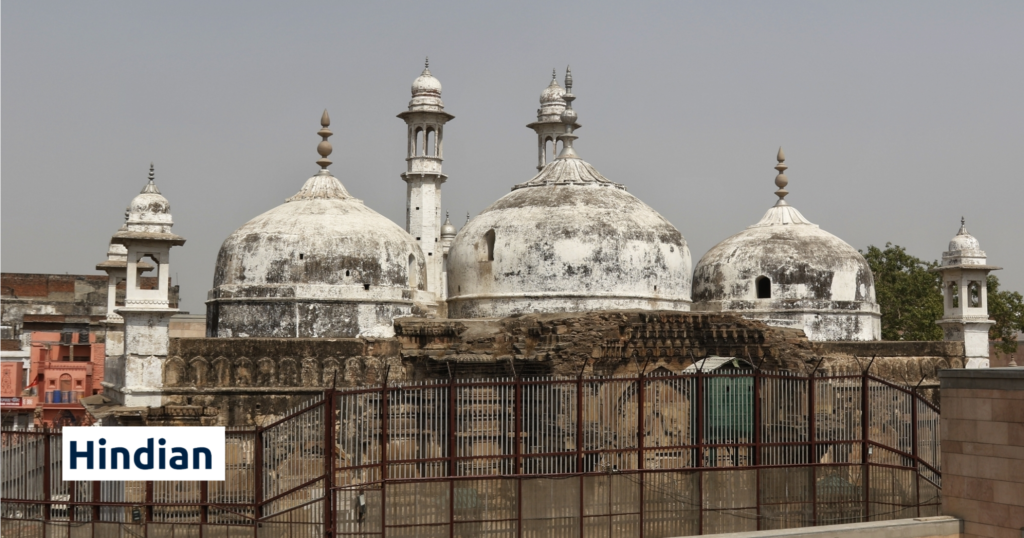Introduction
In the heart of Bharat, temples that have stood for millennia—older than Islam itself—are now being declared as waqf land by unelected religious boards, with shocking complicity or silence from local governments. What we are witnessing is not merely bureaucratic overreach. It is the systematic erasure of the Hindu identity—brick by brick, record by record.
This isn’t just a conflict over land. It’s a battle for our civilizational truth, our ancestral memory, and our right to exist with dignity in our own homeland.
• What is Waqf—and Why Should Hindus Be Alarmed?
Waqf, by definition, is a donation made by Muslims for religious or charitable purposes. However, under the Waqf Act, 1995, Waqf Boards now function with near-absolute powers. They can claim, register, and take possession of any land they deem as historically connected to Islam—without notice, verification, or consent from current landholders.
And once a property is declared “waqf,” it becomes eternal—immune to sale, transfer, or challenge—effectively making it permanent Islamic territory in a secular nation.
Yet, there is no equivalent legal body for Hindu temples. No “Hindu Board” exists to defend ancient dharmic properties. No central register protects our mandirs. But Waqf Boards? They’re government-backed, tax-free, and wield unchecked authority.
• Temples Older Than Islam—Now Claimed by Waqf
1. Brahmeshwar Nath Mahadev Mandir (Begusarai, Bihar)
A divine Shiva temple, standing tall long before the Prophet Muhammad was born, has been arbitrarily listed as waqf land by the Bihar Sunni Waqf Board. No legal notice. No consultation. Just a claim made on paper.
Despite the temple’s ancient roots, the local administration looked the other way. The silence of the Nitish Kumar-led government exposes the rot—appeasement over ancestry.
2. Bhojshala / Kamal Maula Masjid (Dhar, Madhya Pradesh)
Built in the 11th century by Raja Bhoj as a seat of Goddess Saraswati, this heritage site was converted into a mosque during Islamic rule. Today, Muslims claim exclusive ownership, with the Waqf Board listing it as a mosque, even as ASI findings confirm Hindu origins.
Here, devotion has to be negotiated—with Tuesday for Hindus and Friday for Muslims, as if civilizational truths can be split between weekdays.
3. Gyanvapi Complex (Kashi, Uttar Pradesh)
Every Hindu knows the pain of Kashi. The original Kashi Vishwanath Temple was vandalized by Aurangzeb and partially buried under the Gyanvapi Mosque.
The Yogi government may be trying to support the Hindu cause, but the judiciary crawls, while the Waqf Board still holds the upper hand on paper.
4. Krishna Janmabhoomi – Shahi Idgah (Mathura)
The sacred land where Bhagwan Krishna was born has been sullied with the construction of the Shahi Idgah Mosque, a structure built during Mughal times. The mosque stands on temple land, and yet local authorities shy away from action, fearing backlash from so-called secular groups.
Where else in the world does the birthsite of a nation’s most revered deity get treated as disposable?
5. Qutub Complex (Delhi)
The Quwwat-ul-Islam mosque was built by Qutb al-Din Aibak using rubble from 27 razed Hindu and Jain temples. Yet this site is listed under the Waqf Board, not the Hindu community whose gods lie broken and disrespected within its stones.
Delhi’s government and ASI have failed to act despite overwhelming archaeological evidence.
• The Dangerous Pattern
These aren’t isolated incidents. In state after state:
West Bengal: Over 1 lakh properties listed under Waqf. Temples, dharamshalas, and private homes included.
Tamil Nadu: Waqf Boards claiming thousands of acres, including inherited Hindu properties.
Telangana: Multiple ancient temples mysteriously listed as waqf land in revenue records.
In all cases, local governments either collude or remain spinelessly silent, choosing vote banks over justice. When Hindus raise concerns, they are branded as communal or bigots. But who is protecting the rightful religious legacy of this land?
• The Muslim Response: Silence or Justification
While some moderate Muslims oppose overreach, the majority remain silent—or worse, defend such claims as religious right. In many cases, Muslim organizations aggressively defend Waqf Board claims, even in the face of undeniable Hindu history.
Why has the Muslim community never stood up against such religious land grabs?
If a 3,000-year-old temple is claimed as waqf, where is the outrage from the so-called secular voices? Where are the Muslim reformers willing to reject colonial-style land grabs done in Allah’s name?
• Enough is Enough
Hindus must awaken. The Waqf system, as it stands today, is nothing short of legalized encroachment backed by State cowardice. It weaponizes law against dharma and rewards silence with power.
We are the inheritors of Bharat—not tenants. We owe it to our ancestors to reclaim our temples, restore our stolen lands, and reform the system that enabled such cultural theft.
• What Can Be Done?
Demand the abolition or review of the Waqf Act.
Call for a Hindu Heritage Protection Authority with legal rights equal to Waqf Boards.
Support court cases and petitions to reclaim temple lands.
Educate and spread awareness through platforms like Hindian.
Boycott politicians and parties that favor waqf appeasement over Hindu justice.
Let the voice of Sanatan rise again. This is our land, our legacy, and our fight.
Hindi, Hindu, Hindusthan – Our Voice, Our Faith, Our Civilization.



